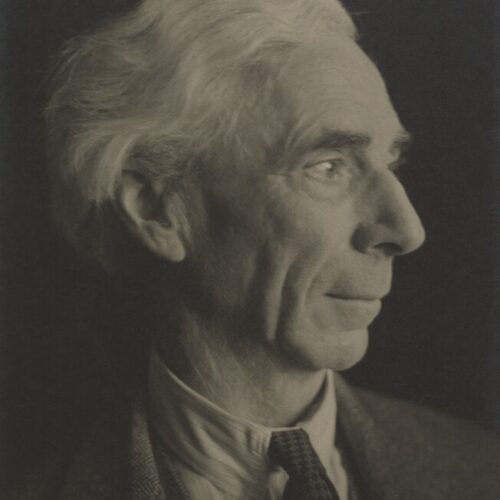

The good life is one inspired by love and guided by knowledge. Neither love without knowledge, nor knowledge without love can produce a good life.
Bertrand Russell, What I Believe (1925)
One of the 20th century’s most prominent and recognisable public intellectuals, Bertrand Russell’s long life and career was richer and more varied than most. As a logician, mathematician, philosopher, essayist, historian, and activist, he produced a wide and diverse body of work and contributed in discussions and literature to many of the issues which would come to define the 20th century.
Yet across all aspects of his career, his humanist values remained a constant. He was motivated by ‘unbearable pity for the sufferings of mankind’, and possessed a firm scepticism of superstition and absolutism in all its forms, believing religions to be ‘both harmful and untrue’. The strength of his kindness and sympathy towards humanity was matched only by his insatiable drive and enthusiasm to make the world a better place for all its inhabitants.
To live a good life in the fullest sense a man must have a good education, friends, love, children (if he desires them), a sufficient income to keep him from want and grave anxiety, good health, and work which is not uninteresting. All these things, in varying degrees, depend upon the community, and are helped or hindered by political events. The good life must be lived in a good society, and is not fully possible otherwise.
BERTRAND RUSSELL, WHAT I BELIEVE (1925)
Russell was born into a prominent aristocratic family. His grandfather, Lord John Russell, had been Prime Minister in the 1840s and 1860s, while Bertrand’s father named John Stuart Mill as the boy’s godfather. Though Mill died shortly after Russell was born, it is clear that sceptical, liberal influences were all around him. He developed a keen interest in mathematics and philosophy, going on to study at Trinity College, Cambridge where he later worked as a lecturer, though his atheism prevented him from being granted a Fellowship. Shortly after the publication of Principia Mathematica, his major work on logic, the First World War broke out. Russell campaigned tirelessly against the war, a stand which cost him his position at Cambridge and saw him imprisoned in 1918.
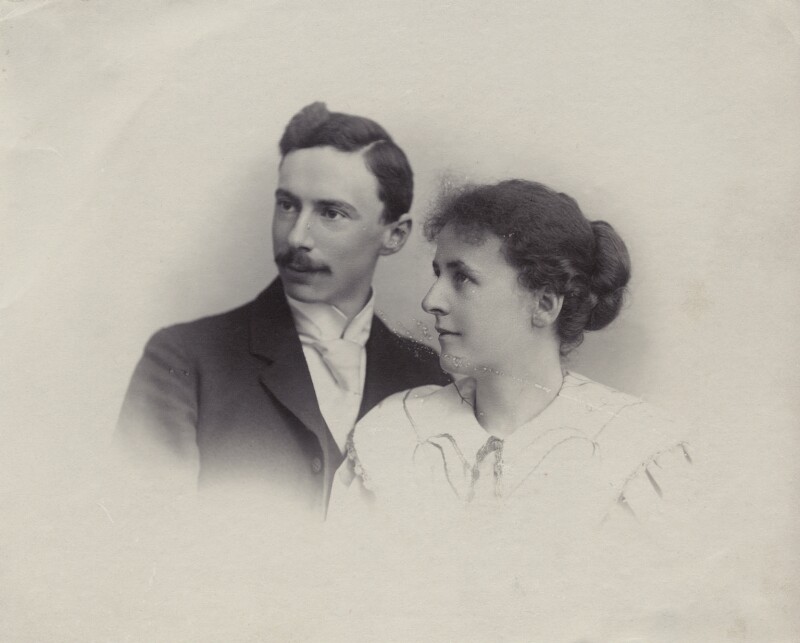
A profound pacifist as he may have been, the Second World War caused a shift in Russell’s position. After initially advocating appeasement, he eventually concluded that military action against Nazi Germany was justified as ‘the lesser of two evils’, because of the direct threat it posed to human life and to democracy. It is this same line of thinking which led him to strongly condemn the USSR after the war. He even began weighing up the morality of a pre-emptive nuclear strike on an ever-more-belligerent and aggressive USSR. Once the USSR developed their own nuclear arsenal, however, Russell staunchly called for total disarmament from all sides. He remained a passionate advocate for world peace, co-operation and human rights until his death, and spent much of his later years highlighting human rights abuses and war crimes across the world.
Russell also made significant contributions to discussions on religion, philosophy, morality and society. A lifelong atheist, Russell gave a lecture in 1927 entitled ‘Why I Am Not A Christian’ which was later published as a pamphlet and became one of the most influential and clinical critiques of Christianity (and revealed religion in general) of the 20th century. In it, Russell highlighted numerous flaws with the typical arguments given for God’s existence, demystified the character of Jesus Christ and refuted the idea that morality is somehow dependent on or grounded in religion. ‘Cruelty and religion has gone hand in hand’, he concluded, rooted as it is in fear and ignorance.
Russell was an empiricist, driven by a lust for knowledge based on evidence and logic, and he found Christianity fatally lacking in both respects. His opposition to traditional Christian ethics also led him to contribute to the discussion on sexual freedom and women’s rights. He stood for Parliament in 1910 on a platform of women’s suffrage, and caused a stir in his 1929 work Marriage And Morals by arguing that sex outside marriage and other sexual infidelities were not necessarily immoral. He would also later be an active member of the Homosexual Law Reform Society.
He had a long association with the British Humanist Association (now Humanists UK) and one of a group of well-known humanists who first set up the BHA’s Advisory Council (patrons), and served as President of Cardiff Humanists until his death. He was actively involved in the great majority of the BHA’s campaigns, and a prominent spokesperson for humanism in the media. Alongside BHA colleagues in the Humanist Broadcasting Council, he urged better representation of non-religious values and humanist convictions on the BBC.
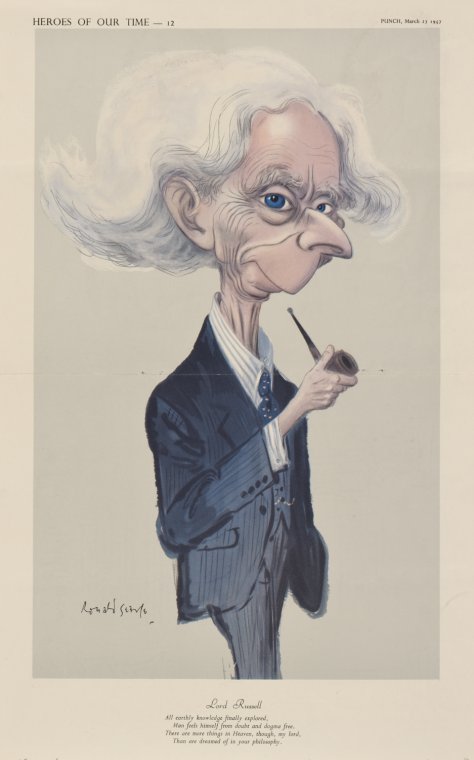
Bertrand Russell was a tenacious and tireless thinker. The scope of his contributions are immense and his influence on society today remains substantial. A lifelong advocate of kindness, sympathy, knowledge, love and dignity, Russell’s humanism shines through in every aspect of his incomparably vast body of work. Living to the grand age of ninety seven, every one of those years was spent striving to make the world a better place. At the age of eighty nine, Russell was imprisoned for his role in a nuclear disarmament demonstration. He was offered leniency on the condition that he promised to maintain ‘good behaviour’. His response? “No, I won’t.”
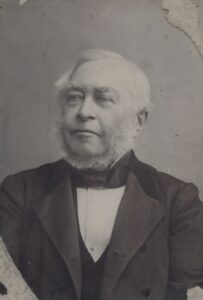
…the smallest experience is sufficient to convince that it is more pleasing, to be at peace than at enmity with […]
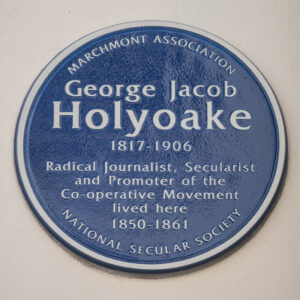
On Woburn Walk is a plaque to George Jacob Holyoake (1817-1906), a writer, lecturer, and promoter of the Cooperative movement, […]
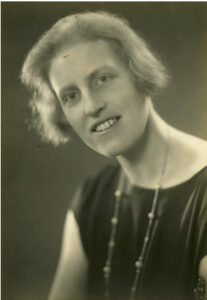
The attempt to create communities where men and women alike share the full stature of humanity is an attempt to […]

Everywhere man blames nature and fate yet his fate is mostly but the echo of his character and passion, his […]